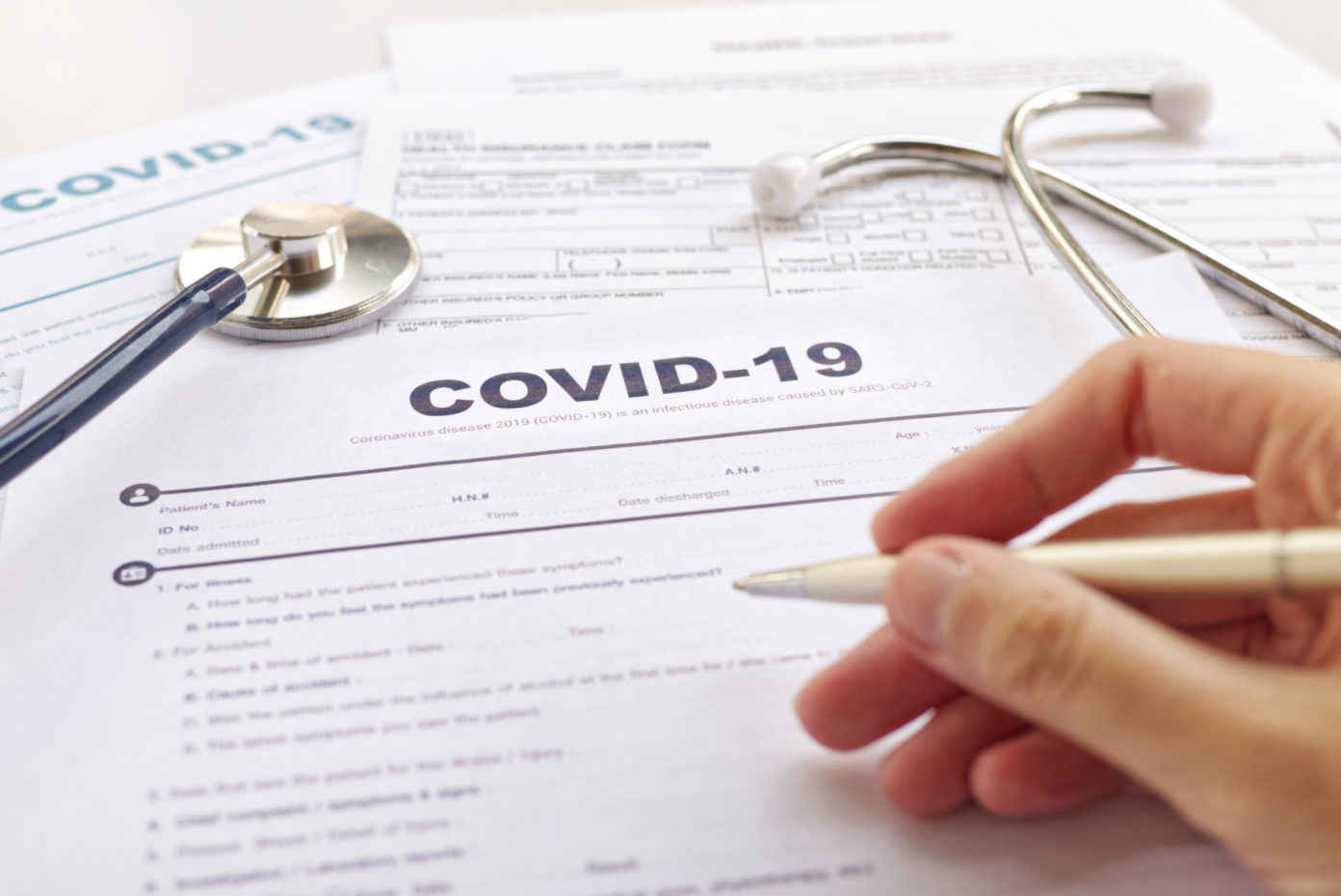Disclosure of COVID-19 Information by Domestic Violence Agencies or Shelters
April 8, 2020
Overview
The COVID-19 pandemic has raised numerous questions with regard to public health reporting requirements. This guidance addresses whether domestic violence agencies or shelters have an obligation to report cases of COVID-19 to a state or local public health department.

Domestic violence (DV) agencies or shelters receiving funds under the Violence Against Women Act (VAWA), Family Violence Prevention and Services Act (FVPSA), or Victims of Crime Act (VOCA) are generally prohibited from disclosing personally identifying information (including name, address, contact information, identification numbers, birth date, etc.) collected through their programs unless (1) they have obtained the “informed, written, reasonably time-limited consent” of the person who is the subject of the information sought or (2) the disclosure is required by a statutory or court mandate. 34 U.S.C. § 12291(b)(2)(B),(C) and 28 C.F.R. § 90.4 (applicable to VAWA grantees and sub-grantees); 42 U.S.C.A. § 10406(c)(5) (applicable to FVPSA grantees and sub-grantees); 28 C.F.R. § 94.115 (applicable to VOCA state administering agencies and sub-recipients). Thus, a VAWA, FVPSA, or VOCA-funded DV agency or shelter may not disclose personally identifying information about a service recipient in connection with reporting a case of COVID-19 unless one of these two exceptions applies (i.e., the agency has obtained consent or the disclosure is mandated by a statute or court).
State laws that require reporting of infectious diseases or other notifiable conditions to the state or local health department typically apply to specific professionals (e.g., physicians, veterinarians, other licensed health care professionals, school authorities), specific facilities (e.g., laboratories, health care facilities, schools, child care centers), or both. See, e.g., N.C.G.S. 130A-133 et seq. These laws do not typically include domestic violence (DV) agencies or shelters or their employees among the list of persons or entities that must report unless the agency or shelter operates a health care clinic or child care facility. Thus, ordinarily, a DV agency or shelter would have no obligation under state law to report infectious disease cases to the state or local health department as a matter of routine.
In many states, however, state law requires that all persons cooperate with a state or local health department’s communicable disease investigation. For example, North Carolina law states the following:
Physicians, persons in charge of medical facilities or laboratories, and other persons shall, upon request and proper identification, permit a local health director or the State Health Director to examine, review, and obtain a copy of medical or other records in their possession or under their control which the State Health Director or a local health director determines pertain to the (i) diagnosis, treatment, or prevention of a communicable disease or communicable condition for a person infected, exposed, or reasonably suspected of being infected or exposed to such a disease or condition, or (ii) the investigation of a known or reasonably suspected outbreak of a communicable disease or communicable condition.
N.C.G.S. 130A-144(b) (emphasis added).
Thus, a DV agency or shelter in North Carolina would be permitted by federal law and required by state statute to comply with a local health department’s request to review records for purposes of a communicable disease investigation.
Due to the ongoing pandemic, some states may utilize statutorily-authorized emergency orders to impose additional reporting requirements or, conversely, to waive otherwise applicable laws, such as those requiring contact tracing. Accordingly, DV agencies and shelters should consult not only their state’s disease reporting and investigation laws, but also their state’s COVID-19 related orders to ascertain current requirements.
If information must be released pursuant to a statutory or court mandate, the DV agency or shelter must attempt to notify persons affected by the disclosure and must take steps necessary to protect affected persons’ privacy and safety. 34 U.S.C. § 12291(b)(2)(B),(C) and 28 C.F.R. § 90.4 (applicable to VAWA grantees and sub-grantees); 42 U.S.C.A. § 10406(c)(5) (applicable to FVPSA grantees and sub-grantees); 28 C.F.R. § 94.115 (applicable to VOCA state administering agencies and sub-recipients). The DV agency or shelter must also be careful to release only the information that is specifically required by the applicable statutory or court mandate, since this is the only information to which the VAWA, FVPSA, and VOCA exceptions apply.
If a DV agency or shelter is not legally required to disclose personally identifying information to state or local health officials, the agency may wish to seek consent from the subject of the potential disclosure. Generally DV agencies or shelters may not require a person to consent to disclosure of information as a condition of receiving services. 34 U.S.C. § 12291(b)(2)(D)(ii) (VAWA); 28 C.F.R. § 94.115(d)(1) (VOCA). Note that the VAWA regulations establish additional requirements for obtaining consent to release information. 28 C.F.R. § 90.4(b)(3)(ii).
Finally, keep in mind that state laws may provide additional confidentiality protections for domestic violence victims. For example, the National Network to End Domestic Violence (NNEDV) has compiled a Summary of U.S. State and Territorial Laws Related to Advocate Confidentiality & Privilege. The NNEDV has also created a Confidentiality Tookit that includes the following helpful resource: Confidentiality: VAWA, FVPSA, and VOCA.
Acknowledgement: Thanks to Sherry Honeycutt Everett, Legal and Policy Director for the North Carolina Coalition Against Domestic Violence, and Jill D. Moore, Associate Professor of Public Law and Government at the University of North Carolina School of Government, for their assistance with developing this article.
The Network for Public Health Law provides information and education about laws related to the public’s health. We do not provide legal representation or provide advice on a particular course of action.
